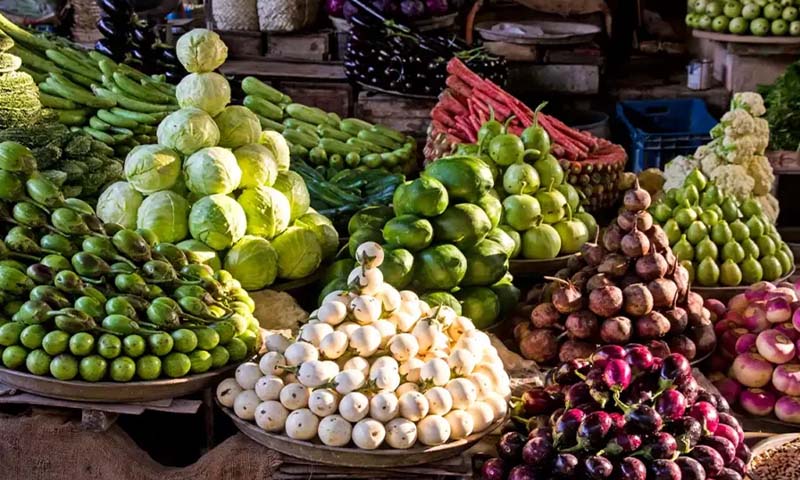- Web Desk
- 1 Hour ago
Rising onion and sugar prices push weekly inflation higher in Pakistan
-

- Web Desk
- Oct 25, 2025

WEB DESK: The Sensitive Price Indicator (SPI) inched up by 0.22 percent for the week ending October 23, 2025, reflecting a mild increase in the cost of essential goods, according to data released by the Pakistan Bureau of Statistics (PBS). On a yearly basis, the inflation rate stood at 5.03 percent, suggesting moderate price growth compared to the same week last year.
Kitchen essentials lead the weekly uptick
The slight rise in weekly inflation was mainly driven by higher prices of key food and household items. Onions saw the steepest jump of 5.62 percent, followed by energy savers which rose 2.51 percent. Eggs became 2.38 percent costlier, while sugar climbed 2.04 percent. Prices of firewood and garlic also increased modestly by 1.17 and 0.93 percent respectively.
Other everyday items like bananas, powdered milk, beef, and cooking oil also registered small gains.
However, relief came from declining prices of chicken, which fell 2.51 percent, rice (IRRI-6/9) by 1.19 percent, and pulse moong by 0.65 percent. Minor reductions were also recorded in LPG, gur, and wheat flour prices.
Yearly inflation shows contrasting trends
On a year-on-year basis, inflation showed a 5.03 percent increase, with some commodities witnessing sharp spikes compared to the previous year. Tomato prices jumped by an astonishing 120.94 percent, while ladies’ sandals became 55.62 percent more expensive. Sugar was up 40.82 percent, gas charges for the first quarter rose 29.85 percent, and wheat flour prices climbed 18.28 percent.
Meanwhile, prices of garlic, pulse gram, and chicken fell by 29.90, 28.23, and 26.32 percent respectively. Electricity charges, onions, and potatoes also saw notable drops from last year’s levels.
Impact varies across income groups
The PBS data showed that the lowest-income households faced the steepest weekly increase of 0.27 percent, while the highest-income group recorded a 0.21 percent rise. Over the past year, inflation hit middle-income families the hardest, with prices rising by more than 6 percent for this group.
Price stability in cement and urea offers respite
In a positive sign, prices of key construction and agricultural inputs showed signs of easing. The average national price for a 50 kg bag of cement stood at Rs1,393, reflecting a weekly dip of 0.18 percent and a yearly decline of 3.82 percent. Similarly, the price of a 50 kg bag of Sona Urea fell 0.17 percent week-on-week and was 4.44 percent lower than the same period last year.
The data suggests that while weekly inflation remains volatile, especially in food prices, stability in non-food items like cement and fertiliser could provide some relief to consumers and industries in the coming weeks.




